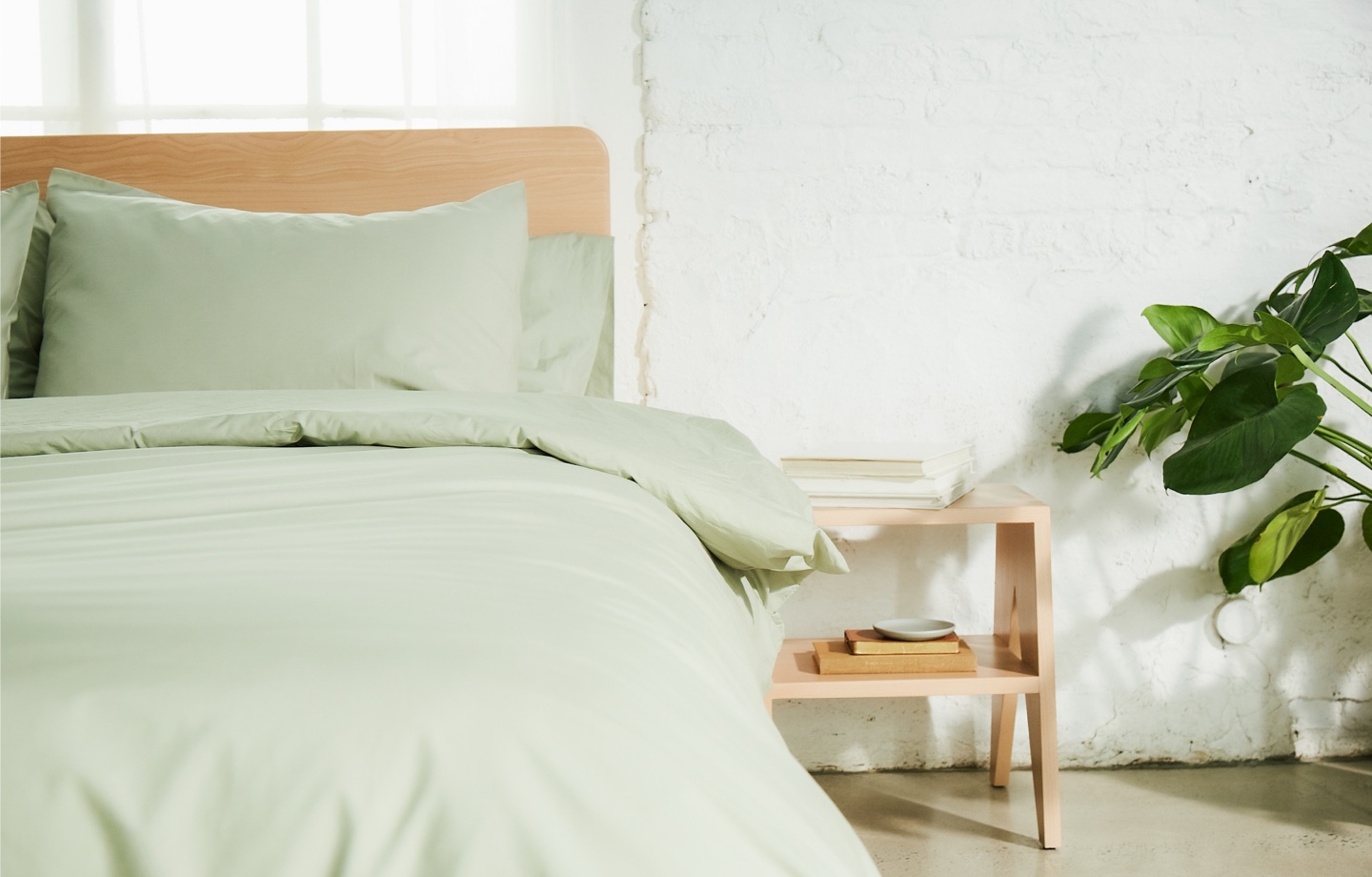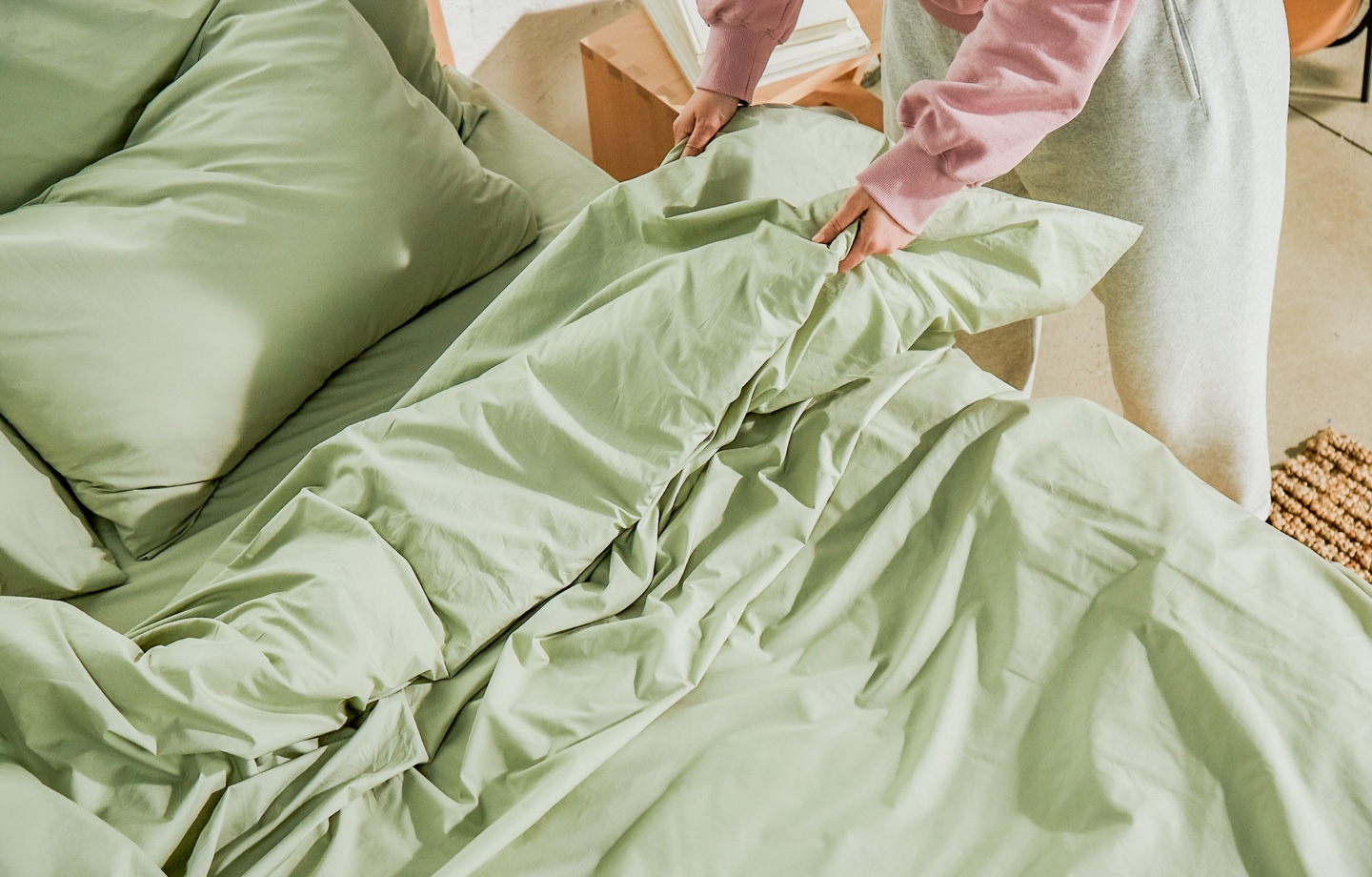Struggling with a night of restless sleep? Learn how to recover after a bad night of sleep with these six tips.
If you’ve ever endured a night of bad sleep, then you know that getting through the following day can feel a lot like running in quicksand—it’s a slog. Lost zzz’s can affect cognitive function, motivation and mood. It can even influence what foods we crave, leading us to reach for sweet, salty and fatty foods. And if falling or staying asleep is a frequent challenge for you, then you know how significantly it can impact your life. After all, most people can’t take a day off from work or other responsibilities because of lost rest.
The good news: While you can’t go back in time to recoup your slumber, you can take steps to feel more awake the following day. Here are six research-backed ways to recover from a night of bad sleep.
Sometimes the best thing you can do after a night of tossing and turning is, well, nothing. It can be tempting to make up for lost rest by sleeping in a few extra hours, chugging an extra coffee or eating sweet foods that will provide a jolt of energy. But these things can actually do more harm than good. Not only can they have adverse effects on how you feel in the short-term, but they can harm your chances of a good night’s rest the following night.
Take, for instance, sleeping in. While snoozing long past your usual wake-up time can feel like a great way to make up for lost rest, it can actually throw off your circadian rhythm, which is your internal clock that tells your body when it’s time to sleep and when it’s time to wake. Interrupting this can make it harder for you to fall asleep the following night, creating a cycle where you’re always chasing sleep. In many cases, the better option is to wake as you normally would in order to get back on track. You can always take a nap midday if you need the snooze (more on this later).
If you do decide that you need to sleep in, limit it to no more than about an hour past your usual wakeup time. This will help preserve your circadian clock. And resist the temptation to hit snooze every 10 minutes when it is time to get out of bed. When you do this, you’re only getting fragments of sleep, which can actually make you feel groggier upon waking.
Another habit you should maintain: caffeine intake. Whether you sip a morning espresso or a couple cups of coffee, enjoy your caffeine as you typically do — but don’t drink too much. Increasing your morning joe can make you feel jittery and anxious. And too much (especially later in the day) can make it hard to fall asleep at night.
The easiest way to feel more alert in the morning is to open the blinds or step outside. Natural light tells your brain to stop producing melatonin, a hormone that signals to our body that it’s time for sleep. Halting the production of this hormone aligns our internal clock with the 24-hour day, helping us feel more alert during our waking hours. Cloudy outside? Don’t worry. You can still get enough light to regulate your circadian rhythm.
Read more: Why Morning Light Is Fundamental To Wellness
Turns out, the sluggishness you feel after a night of lost sleep may be about more than just a lack of rest—you could be dehydrated. A 2018 study from researchers at Pennsylvania State University showed that people who get less than the recommended amount of sleep (defined in the study as six hours or fewer) have a higher chance of becoming dehydrated. This can cause a person to feel, among other things, more tired. The takeaway: If you’re short on sleep, drink more water throughout the day to help increase your focus and feel more awake.

This one may seem counterintuitive, but morning exercise after a bad night of sleep can improve your alertness throughout the day. This is because movement generates physiological responses that act on similar biological pathways to sleep, helping offset some of the effects of lost rest. The only caveat to this: Choose a workout that is not skill based. Sleep loss can affect cognitive function, so you’re better off lifting weights or taking a walk than, say, playing a sport like pickleball. Bonus points if your workout takes you outside to get some much-needed natural light.
Read more: Unwind With These Bedtime Yoga Stretches For Better Sleep
If you’ve ever found yourself craving sugar after a night of bad sleep, you’re not alone. There’s actually a biological reason for this. Sleep deprivation can cause hormone fluctuations that increase cravings for sweet, starchy and fatty foods. The problem with those cravings is that sugar, in particular, can provide a short-term energy boost followed by a crash. This decline can worsen your alertness throughout the day and, you guessed it, make you feel more tired.
Instead of reaching for the candy and other sweets, opt for grains, vegetables, fruits and foods high in omega 3 fatty acids, all of which are known to reduce fatigue. You should also prioritize foods high in the amino acid tyrosine, like eggs and milk, which can boost cognitive function. In practice, this can look like a bowl of oatmeal topped with berries or a couple of eggs and a slice of whole-wheat toast.
Feel like you’re going to fall asleep at your desk? Take a short nap. While experts at the Sleep Foundation say that it’s not necessarily a substitute for a good night’s sleep, a quick snooze during the day can help you feel more energized. Just make sure to limit your nap to between 20 and 30 minutes. Anything longer could create sleep inertia, or that groggy feeling you get just after waking.
Another pro tip: If you’re a coffee drinker, sip your drink just before lying down for your nap. It can take 20 minutes for the caffeine to kick in, so you’ll enjoy the added alertness after waking from your midday doze.

Have feedback on our story? Email [email protected] to let us know what you think!

Shop Pillows
The Essential Organic Pillow Collection
Gentle, breathable, non-toxic support.







